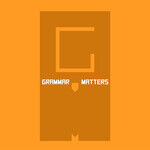As any microbiologist will tell you, you're never truly alone. We are all walking, talking repositories of microbes. Indeed, it's estimated that the number of bacteria living within each of us is at least 10 times greater than the entire number of human cells that make each of us us.
These bacteria, mostly residing in the gut, do a lot of good — and some ill — but they aren't the only microbes we need to pay some attention to. Our homes are microbiomes unto themselves. Apparently, none of us lives alone, either.
The University of Chicago recently published findings from its Home Microbiome Project, which surveyed the domiciles of seven families — 18 people, three dogs and one cat. They swabbed hands, feet and noses daily, plus sampled various household surfaces.
Some findings:
—When people move in to a new house, they bring their own microbes, which quickly alter the new home to look more like the old abode, microbially speaking.
—Married couples and their young children generally share most of their combined microbiomes.
—Dogs and cats that spend time indoors and outside add measurably more plant and soil bacteria to their owners' house microbiomes.
Body of Knowledge
A knee jerk reflex takes about 30 milliseconds, or 30 one-thousandths of a second.
Life in Big Macs
One hour of shooting basketballs burns 306 calories (based on a 150-pound person), or the equivalent of 0.4 Big Mac — maybe more if you miss a lot and have to chase your ball.
Stories for the Waiting Room
Next time you're visiting the urologist, a few facts in passing: It would take a dozen mice one entire day to fill a tablespoon with urine. A horse, such as a Clydesdale, can urinate more than 4.5 gallons per day; an elephant can produce 13 gallons. A fin whale's bladder holds 5.5 gallons of urine, which means it would very likely be guaranteed a good night's sleep if whales actually slept like humans. (Hint: They don't.)
Doc Talk
Idiopathic: traditionally defined as "arising from an obscure or unknown cause," which is another way of saying the doctor can't explain or identify the cause of a condition or symptoms.
Phobia of the Week
Hodophobia: fear of road travel.
Never Say Diet
The speed-eating record for hamantaschen is 48 in five minutes, held by Jamie McDonald. Hamantaschen are triangular cookies or pastries with a fruit filling.
Best Medicine
A psychiatrist congratulates his patient on making significant progress with his therapy.
"You call this progress, doc? Six months ago, I was a Napoleon; now I'm nobody."
Medical History
This week in 1994, the Food and Drug Administration approved the left ventricular assist device, a medical device that helps failing hearts continue to function.
Curtain Calls
A chef named Peng Fan working in a restaurant in Foshan, China, died earlier this year after he was bitten by a venomous snake 20 minutes after he had cut off its head. Peng was preparing a soup featuring Indochinese spitting cobra, considered a rare delicacy in the region, when he picked up the severed head to throw it away. The head reacted by biting him, injecting a neurotoxic venom. Peng died before paramedics could get him to a hospital for antivenin treatment.
To find out more about Scott LaFee and read features by other Creators Syndicate writers and cartoonists, visit the Creators Syndicate website at www.creators.com.






View Comments